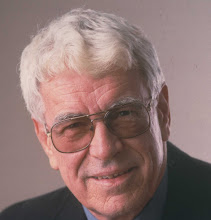When commentators and reporters describe people like me as “anti-globalization,” I get annoyed.
“Globalization” in its true sense is not a set of policies or institutional initiatives. It is simply a fact. How can one oppose the movement of the air, sushi, the circulation of the oceans, the Internet, the migration of birds, the world-wide circulation of ideas? The world has become very small, and each of us is connected to all of it.
What I do oppose – what millions like me oppose – is a global conspiracy of institutions which give priority to money over human beings. I oppose a “harmonization” of trade rules and regulations which means that commerce trumps working conditions, health-care and the environment. I oppose a system which empowers unelected officials, meeting in secret and accountable to no one, to determine the conditions under which you and I will live our lives.
But I am entirely in favour of bringing democracy to Afghanistan and Iraq, if that is what their people want.(Did anyone think to ask them?) I am even more in favour of bringing democracy to the World Trade Organization, the International Monetary Fund, the G8, and the people of North America.
One of the great oddities of economic globalization – which really amounts to economic and social homogenization – is that so many of its enthusiasts have little concept of the rich complexity and variety of the world as it is. “Globalization” seems to be driven by people as ignorant as George W. Bush, who had travelled outside the United States only once before he became president.
And I am struck by the fact that the “anti-globalization” forces are so often led by people who really do know the larger world – people who have travelled widely, and have often lived abroad as teachers, journalists, health-care workers and students.
The barons of industry and their servants in government have created global organizations to serve their interests. The rest of us don't have such resources. So we create small organizations to fight on a local scale – issue by issue, event by event, town by town. Paul Hawken recently estimated that the world's people have created nearly two million organizations actively engaged with environmental and social justice issues. But we don't have a commanding voice on the world stage.
That may be about to change. Last year, an international coalition of civil society organizations and prominent individuals launched a campaign to establish a United Nations Parliamentary Assembly. The UN General Assembly provides a forum only for the national governments of the world. The UNPA, by contrast, would be a place where the world's people could be directly represented. It would begin – like the European parliament – as a consultative body made up of parliamentarians from around the world. It could evolve – again, like the European parliament – into a directly-elected World Parliament with gradually-increasing powers and authority.
Among the Canadians calling for a UN Parliamentary Assembly are Lloyd Axworthy, Flora MacDonald, Romeo Dallaire, Elizabeth May, Lois Wilson, Warren Allmand, Allan Blakeney and Douglas Roche. You could hardly find a more distinguished group of internationally-minded Canadians – two foreign ministers and a solicitor-general, our most revered soldier, a former president of the World Council of Churches, an ambassador for disarmament, the leader of the Greens.
The appeal has been endorsed by the Liberal International, the Socialist International and the Global Greens. It's been signed by parliamentarians from 113 countries, by 108 civil society organizations, and by a growing number of eminent individuals like Boutros Boutros-Ghali. You can see the list – and sign up yourself – at www.unpacampaign.org.
The idea is gaining some traction. Last July, our own House of Commons Standing Committee on Foreign Affairs and International Development called on Canada's Parliament to “give favourable consideration to the establishment of a United Nations Parliamentary Assembly,” noting that Canada could be the first nation to endorse the proposal.
It's time. We all breathe the same altered air, sail the same rising seas, drink the water that falls from the moving clouds. Emissions from Nova Scotian smokestacks and tailpipes compromise the polar bear's habitat, cause emphysema in Moscow and drown the island nations of the Pacific. We need political connections to match our natural connections.
In 1835, in a prophetic poem called “Locksley Hall,” Lord Tennyson foresaw commercial air travel, and aerial battles between the “airy navies” of the nations raining down a “ghastly dew” of bombs. All of that has come to pass. But Tennyson also imagined a day when
...the war-drum throbb’d no longer, and the battle-flags were furl’d
In the Parliament of man, the Federation of the world.
The federation of the world – Tennyson's dream – has not come to pass. But if we are to survive, it must. A parliamentary assembly of the peoples of the world would be a huge step forward.
-- 30 --
Sunday, May 25, 2008
The Federation of the World
Subscribe to:
Post Comments (Atom)

No comments:
Post a Comment